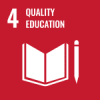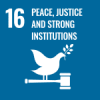The implementation of the Emergency Restrictions on Community Activities (PPKM) has been in effect since 3 July 2021. In general, this policy seems to have succeeded in reducing community activities in public spaces so far for one week. However, when the data on community activities in public spaces are broken down to the provincial level, the decline in activity is very varied. There is even an increase in certain areas. Research from the Institute For Policy Development, Department of Management and Public Policy (DMKP) FISIPOL UGM, entitled ‘Notes Halfway through Emergency PPKM’ published on Thursday (15/7) revealed these results.
The research, which is classified as big data research, with data sources from Google Mobility, Google Trends, and machine learning: similarweb, showed that the highest increase in community activity in the home area occurred in East Java. Meanwhile, community activity is lowest in the provinces of Central Java, West Java, and Banten.
One of the research team members, Cahyani Widi, revealed that the Emergency PPKM succeeded in increasing the activities of the people of East Java in the home area by 2.71%. Meanwhile, in Central Java, West Java, and Baten, Emergency PPKM only increased community activities in the home area by less than 1%.
“(As a result, Emergency PPKM appears to be) running less effectively in Central Java, West Java, and Banten (when compared to other provinces),” said Widi.
With the Emergency PPKM, community activities in the workplace also appear to have decreased significantly. However, in the breakdown, it turns out that not all provinces experienced a decline, as was the case in Central Java. The activities of the people of Central Java at work increased by 0.57%.
In Yogyakarta, the decline in community mobility in retail and recreation areas is quite significant. However, community mobility in the parks has increased. The increase in community mobility in parks also happens in the DKI Jakarta area.
Because of these findings, one of the other research teams, Media Wahyudi Askar, Lecturer of Management and Public Policy at FISIPOL UGM, put forward several recommendations. First, the government needs to continue to prepare additional beds, posts, tents, emergency buildings, or shelters. Second, the government also needs to use a multilevel referral system between health facilities (hospitals and shelters) based on the patient’s level of symptoms to minimize the accumulation of patients in health facilities. Third, limiting people from abroad. Fourth, optimizing the Work From Home (WFH) policy and limiting community mobility outside the home, especially in Bali. Fifth, the government also needs to ensure that the distribution of oxygen supply in all health facilities is well and evenly controlled.
“This morning the government held a press conference, Mr. Luhut Pandjaitan, and we have given them some notes. But what we need to convey here is that the conditions in the field are far more complex and complicated than what the government has described,” concluded Media.
You can watch the seminar entitled ‘Emergency PPKM Halfway Notes’ from the Institute For Policy Development of DMKP FISIPOL UGM here. (https://www.youtube.com/watch?v=TRdsQxmsmK8 )



